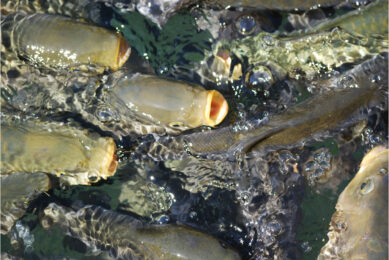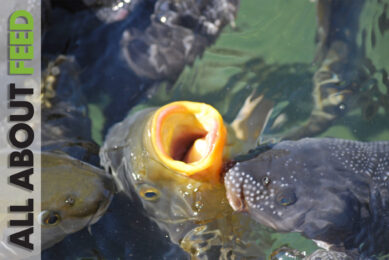New protein source to replace menhaden fishmeal
A study by the University of Idaho confermed that PetroAlgae Protein Concentrate can be used as a replacement for high quality fishmeal in tilapia farming.
Renewable energy company PetroAlgae Inc. announced that a study done by the Aquaculture Research Institute at the University of Idaho has found its protein concentrate (PPC) produced as a co-product along with the renewable fuel feedstock can replace menhaden fishmeal protein at levels up to 100% in feeds for tilapia.
"We are very encouraged by the results of this extensive study because they point to PetroAlgae protein as a highly desirable replacement for fishmeal at a time when feed demand is expected to increase dramatically in the face of limited traditional supply," said Dr. Ronald W. Hardy who conducted the study.
The study also found that PPC would be suitable as a fishmeal replacement for other farmed fish species.
According to the study, tilapia is one of the largest-volume farmed fish species, and tilapia production is expected to grow from 2.8 million tons to more than 9 million tons by 2020, requiring 13 million tons of feed (up from 8 million tons in 2010).
Micro-crop technology
PetroAlgae’s micro-crop technology employs indigenous, aquatic micro-organisms suitable to local climates.
It is designed to enable its technology licensees to produce a cost-effective alternative to fossil fuels as well as a high-value protein co-product, while absorbing carbon dioxide from greenhouse gas emissions.
Micro-crop farms utilizing PetroAlgae’s technology are highly productive and grow new sources of protein locally that are not genetically modified and are resistant to local diseases.
In addition to its uses in the aquaculture industry, the company expects PPC to be suitable for nursery swine, poultry, and, ultimately, for direct human consumption.
Amino acids in balance
The study concluded that PPC is capable of replacing fishmeal protein up to 100% in feeds for tilapia, without the need for amino acid supplementation or other adjustments to the formulation, and can provide growth performance similar to fishmeal.
PPC, when combined with fishmeal, supported higher fish weight gain than with fishmeal alone, suggesting a positive synergistic effect most likely related to favourable amino acid balance in the feed.
PPC does not change the composition of tilapia and does not increase tilapia mortality rates. Together, these findings indicate that PPC is a safe feed ingredient with no toxic indications after nine weeks of feeding.
PPC yields nutrients that are highly digestible, demonstrating significant potential as a feed component for other farmed fish species.
The protein concentrate has excellent suitability for producing low pollution feeds that reduce environmental contamination in dense aquaculture areas.
PetroAlgae Inc. is based in Melbourne, Florida, USA and is a renewable energy company that licenses and deploys the leading biomass production platform to address existing and growing unmet needs in the global energy and agriculture markets.
The company’s technology enables the growing and harvesting of a wide variety of non-algae, aquatic micro-crops suitable to local climates in open-pond bioreactors.











